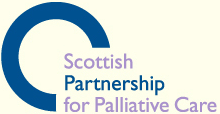- SPPC Achievements 2024-25
- Annual Conference 2025: From System Holes to Whole System
- Call for Posters
- Assisted Dying Bill - Perspectives Informed by Palliative Care
- SPPC’s response to the public consultation on the SG Strategy for Palliative Care
Poster Abstracts of the Month: January
Poster Abstracts of the Month: January
Each month we focus on a few of the posters displayed at a previous SPPC Annual Conference. This month we look at five posters from the 2017 conference...
- The Inside Out Hospice Approach
- The WoW Consultation
- Using poetry to describe the essence of person-centred engagement in palliative care
- Using the Gold Standard Framework "trigger questions" to improve medical inpatient anticipatory care planning
- Working together to enable person-centred palliative and end of life care
The Inside Out Hospice Approach |
|
|
Author(s) |
Joyce Sweeney |
|
The WoW Consultation |
|
|
Author(s) |
Dr Sheonad Laidlaw; Dr Emma Carduff |
|
Computers are now common place in general practice. Studies have been conducted looking at the relationship and interaction between doctor, patient and computer, and show that the doctor-patient relationship changes as each relates to the computer. Marie Curie is in the final stages of implementing an Electronic Patient Records (EPR) and Patient Administration System (PAS), via EmisWeb, enabling the recording of real time patient data on the ward by means of Workstations on Wheels (WoWs). A qualitative study was conducted at the Glasgow hospice using a questionnaire exploring the staff’s feelings about using the WoW in a consultation; their perception of how the patient and their family would feel; how they think that the computer will affect the consultation; and the positives and negatives of using a computer with their patients. Results show that staff are hesitant and nervous of using WoWs by the bedside, seeing it as a physical barrier to verbal and non-verbal communication, potentially impeding the rapport – and ultimately the relationship between HCP and patient. Staff see the benefit of using computers to capture patient centred data but not at the expense of their relationship with the patient. |
|
|
Using poetry to describe the essence of person-centred engagement in palliative care |
|
|
Author(s) |
Dr Erna Haraldsdottir |
|
Background: A small fund from Good Life, Good Death, Good Grief for a To Absent Friend activity allowed a hospice to run a poetry workshop for staff exploring the essence of engaging with dying patients in a person-centred way. Aim: To provide a forum for staff whereby using the medium of art allowed for expressing, in a different way, person centred care engagement in the palliative care context. Method: A poet facilitated 2-hour workshop for five members of staff in a hospice which included sharing of stories of person centred engagement with patients. Objects were used to reflect the essence of the engagement in each story and poetry written that further reflected the essence of the engagement. Results: Seven poems were written which will be presented in the poster and all describing the uniqueness of person-centred engagement. Evaluation: Evaluation was very positive with staff finding the workshop empowering, insightful and the creative expression therapeutic. |
|
|
Using the Gold Standard Framework "trigger questions" to improve medical inpatient anticipatory care planning |
|
|
Author(s) |
Louise McKenna; Gillian Mulholland; Lise Axford |
|
The Gold Standards Framework (GSF) Centre in End of Life Care “trigger questions” are used by GPs to identify patients approaching the end of life (when death is foreseeable within 12 months). Our aim was to assess if the GSF “trigger questions”, which identify general and/or clinical indicators of decline, could be used in the inpatient medical setting. A retrospective review of electronic case notes using GSF “trigger questions” was performed using cardiac arrest call data (a proxy measure of the dying patient) from four general medical wards in Hairmyres Hospital, Lanarkshire. Between August-December 2016, 18 patients having peri-arrest/cardiac arrest events had general and/or clinical indicators of decline, indicating approaching end of life. Eight patients survived and had anticipatory care plans placed; 7 subsequently died. A second retrospective analysis was performed between February-May 2017, during which there were 5 peri-arrest/cardiac arrest events. Of these, 3 patients had GSF indicators of decline; 2 patients then had anticipatory care planning, prior to their death. This project identifies the need to improve the recognisation of the medical inpatient approaching the end of life amongst inpatient clinicians. It suggests the use of community GSF “trigger questions” may help improve inpatient anticipatory care planning. |
|
|
Working together to enable person-centred palliative and end of life care |
|
|
Author(s) |
Janice Logan; Dr Erna Haraldsdottir; Dr Annabel Howell; Gerry Finnan; Dr Pam Levack |
|
Background: Education initiative that enables registered nurses from general health care settings to explore, reflect and build on their experience of palliative and end of life care practice. Classroom teaching and shadowing members of specialist palliative care team at a hospice and palliative care unit are included. Method: Underpinning principle is the integration of experience with theory through reflection on practice and embedding of new learning into practice. Small cohort of nurses (8) undertake 3 x classroom teaching days and 2 x days clinical shadowing. Utilising the belief from adult education theory that reflection can turn experience into learning, 6 x follow up days, over 6-month period, enable the participants to construct and organise new knowledge and understanding. Findings: One cohort is progressing with follow-up days. It is evident that the rewards of learning in this way include the depth of insight generated with associated energy and motivation contributing to new ways of working and practice improvement. Evaluation has been positive with participants finding the course engaging/inspiring, ‘discussion very helpful key, learning points identified around symptom control, ‘benefit of shadowing experience included observing a palliative specialist communicate effectively with a terminally ill patient’. Next steps: A second cohort will commence in September. |
|


